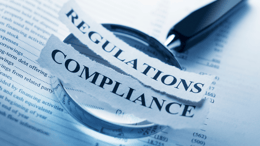
Dr James Sinclair of Ethical Innovations is our latest guest blogger. He is a 20-year qualified English lawyer and ESG pioneer.
ESG reporting has suddenly become tremendously important. Investors, regulators and business partners are all demanding to see ESG reports. For many companies, particularly SMEs, this may be the first time they have been confronted with such requests and they may be tempted to take what looks like the path of least resistance, knock out a 'quick and dirty' report or buy in a ‘one-stop shop’ tech solution, the job is done.
Well, no. The whole point of ESG compliance is that it is a process. The report comes at the end of that process, not the beginning.
The place to start is with the values of the organisation. Articulate those values, thinking about the kind of legacy you want the company to leave and how you can cause as little environmental and social harm as possible, as well as how to maximise your positive impact.
This should then be reduced into a formal ESG strategy, which should encompass all aspects of the business and its supply and value chains. This process can (and should) be done in conjunction with a comprehensive materiality assessment, where you identify those areas in your business that need particular attention from an environmental, governance and human rights perspective.
Once you have your strategy and have concluded your materiality assessment, it’s time to create and implement policies that will help to address the issues you have discovered. It may be that you need more robust contracting terms with an outsourced service provider in a high-risk territory, or you might need to rethink your energy use at headquarters or your gender balance and pay gap. All these issues and many more may need to be addressed with a suite of policies that can flow down from the top and reach right through the structures of the organisation and (if relevant) it's business relationships.
Having created the strategy and policies you are now in a position to report on your progress. Remember that this is not a one-year deal, ESG reports will need to be updated at least annually. Remember also that this is a journey, nobody is expecting companies to be perfect and those who claim to be will have little credibility. The best reports demonstrate self-awareness, robust ESG-based interrogation of processes and people to ensure that best practice is being developed and a commitment to continual improvement.
Once you have done all that, it's time to craft a narrative to explain your ESG journey.
At Ethical Innovations, we specialise in the provision of strategic ESG advisory services, policy development, reporting and communications. They have over 20 years of high-level experience and global value chain expertise.
Contact james@ethicalinnovations.co.uk for an initial, no-obligation consultation and you can find the rest of his blogs here - https://www.ethicalinnovations.co.uk/blog



